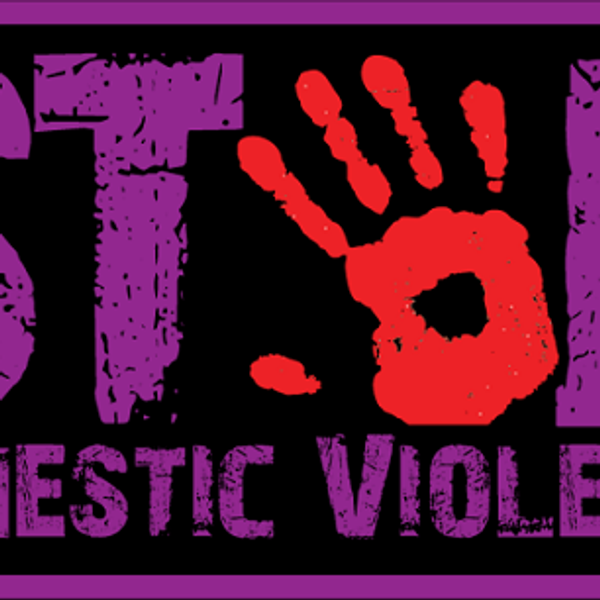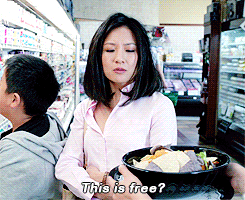Domestic Violence is a prevailing tragedy in our country, with a fifth of all women and a seventh of all men having had an partner physically abuse them in a serious way. October is Domestic Violence Awareness Month, so it's good to know how you can continue to help victims of domestic violence every month of the year. Special thanks to Mikayla Mann, a graduate from Western Carolina University who has her degree in sociology and worked as a rape prevention and education coordinator at a domestic violence and sexual assault dual agency, for sharing her wealth of knowledge and insight. Here are the 12 ways everybody can help victims of domestic violence.
1. Know the warning signs.
Learn the tell-tale signs that someone has an abusive partner. Maybe your friend is constantly checking in with her partner before she'll go anywhere or spend even the smallest amount of money. Maybe your co-worker's spouse always finds ways to shame him in public. There are many clues you just have to know what to look for.
2. Understand the basics.
Domestic violence isn't simple. Gaining a basic understanding of what domestic violence is -- that it's a lot more complex and psychological than hitting -- will make you more adept to help someone in need. The National Center on Domestic and Sexual Violence provides an easy-to-read "Wheel of Power and Control" that shows the elements of domestic violence beyond the physical aspects.
3. Don't pressure them to leave.
There are so many reasons why a victim of domestic violence might stay in the relationship: fear for themselves or loved ones, lack of resources, and love for their abuser are just a few. As strange as it sounds, pressuring a victim to leave could actually make it less likely that they'll ever get out of that situation. If a victim of domestic violence has finally summoned up the courage to open up, pressuring them to leave might frighten them back even further into secrecy. Not only that, but you are becoming yet another person trying to control them, and that's the last thing they need. Refraining from judgement is one of the most important things you can do for someone in an abusive relationship.
4. Help them develop a safety plan.
Whether they are reluctant to leave, still in the process of doing so or once they've already left, learn about the different kinds of safety plans and strategies to minimize physical and emotional damage. These plans range from mental coping mechanisms to figuring out how to keep their pets to starting the legal processes as safely as possible. Safety plans vary based on personal circumstances, so listen and be there to help them find what they need.
5. Find different ways to support them.
It's not always easy to accept help in this kind of situation. Don't be offended if they don't come running into your arms. This isn't about you. It's about them. If they don't want your help with the details or don't want to leave, remember that it's not your job to be a hero. Your role is to support them in whatever way they need and guide them towards the professionals who are trained to provide lasting help. Offer them a place to stay or a way to do something for themselves outside of the relationship if the can do so without fear. Their safety and their comfort is the priority. Don't try and make them react how you think you would because you have no way to know what they are really feeling.
6. Understand there's not one magical formula for domestic violence. It won't always work the same.
The most common perception of domestic violence is a male beating a female. This isn't always the case. Men are victims of female abusers. Those being abused within a LGBTQ relationships face a new set of struggles, like the fear of being outed. Sometimes, the abuser will threaten to harm or kill themselves or someone the victim loves like a child, family member or pet as a means of control and manipulation. Understanding this will help you be able to believe and support those who don't fit the typical idea of domestic violence.
7. Make sure they know that confidential and free help is accessible.
A lot of the times, victims of domestic violence would seek out help if they knew they could. Make sure they know that there is help for any victim of domestic abuse and help them locate the nearest domestic violence agency. Domestic violence programs provide free and confidential help to victims of domestic abuse and their children. Know where your local agency is so you can help someone get there. Be sure to offer them a ride in case they don't feel like they can safely leave alone.
8. Look into domestic violence protection orders.
Some states like North Carolina offer what's called a Domestic Violence Protection Order: a "civil order that provides protection from someone who you have/had a 'personal relationship'" with. This order provides immediate protection to the abused and their family without getting the police involved, which can be a big relief to many people who would otherwise not file for this kind of help. Look into what your state offers and a little bit about the process of getting one so you can let them know this resource is available.
9. Understand that when a victim first leaves it can be the most dangerous.
Once a survivor of domestic violence leaves, you would think they were out of the woods, but the time immediately following their fleeing can be when they are at the most risk. Most importantly, make sure they have a safe place to stay. Make sure they know about resources pertaining to supporting themselves and/or their children since financial co-dependence is a common reason abuse victims stay. In this vulnerable time, make sure they know their options to be as safe as possible.
10. Stop contributing to the normalization of domestic violence.
We see images of domestic violence all around us -- in pop culture, in movies, in advertising. Little things we say and see begin to desensitize us to the horrors of domestic violence and make it seem like it's just an accepted part of our culture. Calling people out in your daily life is one way, but there's even an app for that! #NotBuyingIt is a free app where anyone can call out companies that use harmful stereotypes about gender -- including the glorification of sexual violence -- to sell products. By drawing attention to those who use these images and words, we can make a difference in how our culture talks and thinks about domestic violence.
11. Know this number: The National Domestic Violence Hotline.
This hotline provides free counseling for anyone, all hours of the day, every day of the year. You can write it on a card and slip it into your wallet in case you meet someone who needs it.
12. Get involved!
If Domestic Violence Awareness Month has left you inspired to help people beyond those in your life, there are a bunch of amazing organizations working to help end domestic abuse and provide care to survivors. There are a million ways to support these organizations -- from donating to volunteering to collecting clothes and food for their shelters. Everything you do will make a real difference in somebody's life. Go ahead! Get involved right now!
If you are looking for help, call1-800-799-SAFE (7233) or click on any of the links throughout this article, for they will lead you right to a resource that can provide you the care you need.
































